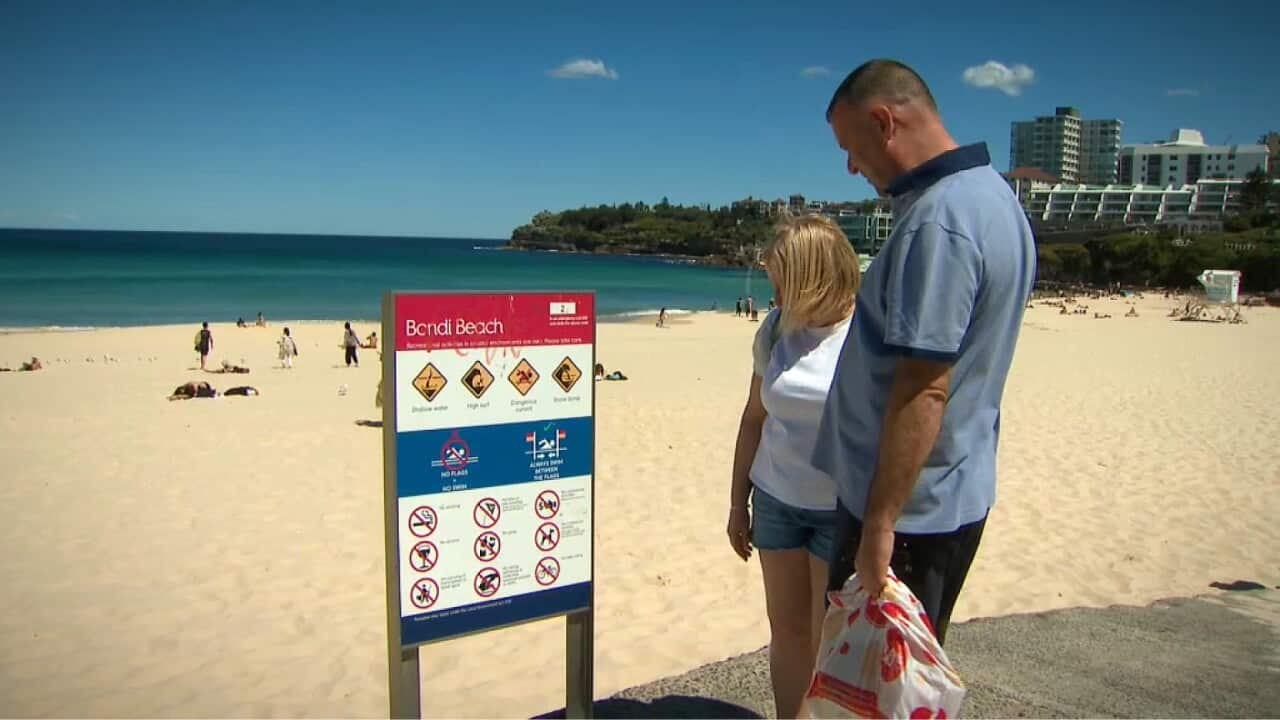A record 141 drowning deaths occurred on the Australian coast in 2021-22, prompting some to question how well the safety signs are working.
A new study surveyed 160 people at Bondi Beach, asking about their interpretation of messaging.
It found about half of people born overseas and 40 per cent of Australian-born people don't - or very rarely- bother reading the signs at all...
It also revealed about 30 percent of Australian AND overseas-born beach-goers thought the ‘swim between the flags’ message means only those who are properly swimming - such as doing laps - could be there.
The- research was carried out by Dr Masaki Shibata from the University of Adelaide:
“ Basically the tourists thought that swim between flags means you literally have to swim and if you can’t swim you have to be outside, now that’s a horrible interpretation isn’t it.”
Dr Shibata says on top of these results, other terms commonly used in beach signage - such as shore dump and high surf - are understood by less than 30 per cent of overseas-born beach-goers.
Shane Daw from Surf Lifesaving Australia - which DOESN'T put up the signs - says one of the issues is that people simply ignore the warnings.
“ I think we need to be a little bit careful about which way we go with this. I think there needs to be better introduction and awareness that when people are coming to Australia they are aware of what they may be exposed to.”
Mr Daw says one surprising statistic is that of the people who drown whose birthplace is known, only 12 per cent are tourists, international students or backpackers who are normally resident overseas.
That means it is overseas-born Australian residents who are most at risk from drowning on the coast.




